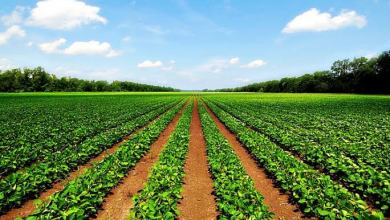
Agricultural Opportunities in Kogi – Gov. Ahmed Ododo
Kogi State, situated in the North Central zone of Nigeria, stands out as a significant hub for agriculture, boasting extensive fertile land and a favorable climate that encourage diverse crop cultivation and investment opportunities. Covering a landmass of approximately 29,833 km², Kogi is ranked the 13th largest state in Nigeria and is endowed with rich soils that range from loam to clay loam, suitable for numerous agricultural activities.
Kogi State’s agricultural landscape is marked by abundant arable land and good grazing grounds, reinforced by the presence of large water bodies that support fishing and irrigation farming. The ecological setting supports planting mostly during the early rainy season (April to June) and peak rainy season (July to September), with irrigation continuing into the dry months (October to February).
Main crops cultivated in Kogi include cassava, maize, rice, yam, cowpeas, sorghum, beniseed, cashew, mango, citrus fruits, groundnuts, melons, oil palm, and sweet potatoes. Notably, Kogi is the highest producer of cassava and cashew in Nigeria, with cassava alone contributing significantly to the overall agricultural output. Rice production is prominent in the flood plains of Kogi’s rivers, supported by a rice milling industry that processes thousands of tons annually.
Under the leadership of Governor Ahmed Ododo, the government of Kogi State has implemented several initiatives aimed at boosting agricultural productivity and attracting investments. Governor Ododo’s administration has overseen the development of a rice mill industry that generates over 300 direct jobs, alongside an out-growers empowerment program supporting more than 150 local farmers. The establishment of greenhouses for vegetables such as pepper and tomatoes also exemplifies the government’s commitment to modernizing agriculture within the state.
Read Also:
Mechanized farming is gaining traction as a critical opportunity. Despite manual cultivation still being common, the availability of fertile land and a ready market for produce from neighboring states emphasize the potential for mechanized agriculture to grow rapidly. Governor Ododo’s administration has prioritized agricultural development projects including improvements in rural roads, potable water supply, and the distribution of farm inputs, thereby creating a more supportive ecosystem for farmers.
Kogi offers promising possibilities for agro-processing, storage facilities, and value addition to raw agricultural products. Approximately 30% of the state’s Gross State Product (GSP) comes from agriculture and agro-processing, presenting investors with opportunities to establish processing plants for crops such as cassava, rice, and cashew to build sustainable agribusinesses.
In addition to agriculture, the state is rich in mineral resources, supporting industries like cement production most notably at the Obajana Cement Factory and providing a foundation for further industrial and agricultural integration. With Governor Ahmed Ododo’s focus on security, infrastructure development, and investor-friendly policies, Kogi State fosters a stable and attractive climate for agricultural investment.
Kogi State’s combination of fertile land, diverse crops, expanding mechanized farming, and strong governmental support under Governor Ahmed Ododo make it a compelling destination for agricultural investors seeking growth in Nigeria. The ongoing commitment to infrastructure, policy stability, and agribusiness development unlocks significant potential for transforming the state into a leading agricultural hub in the region.











